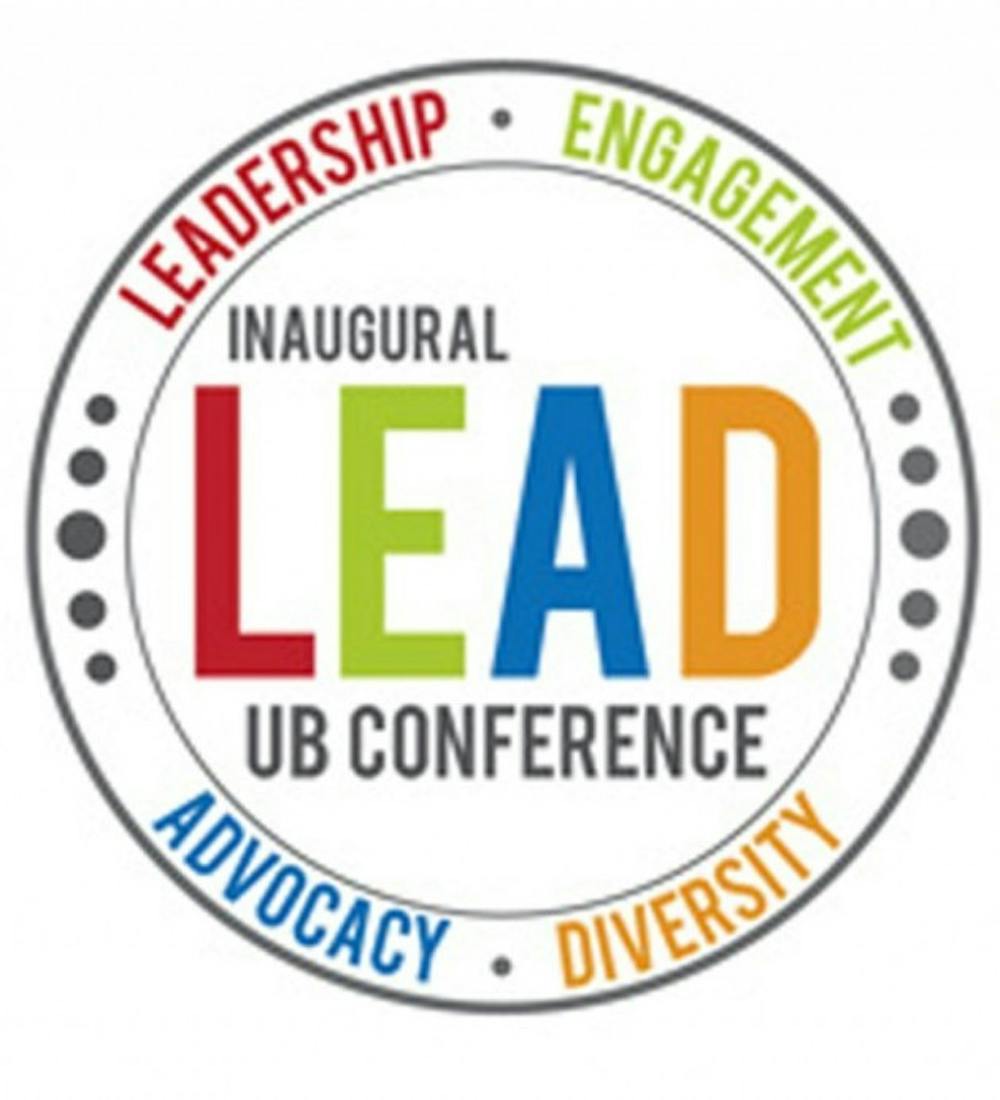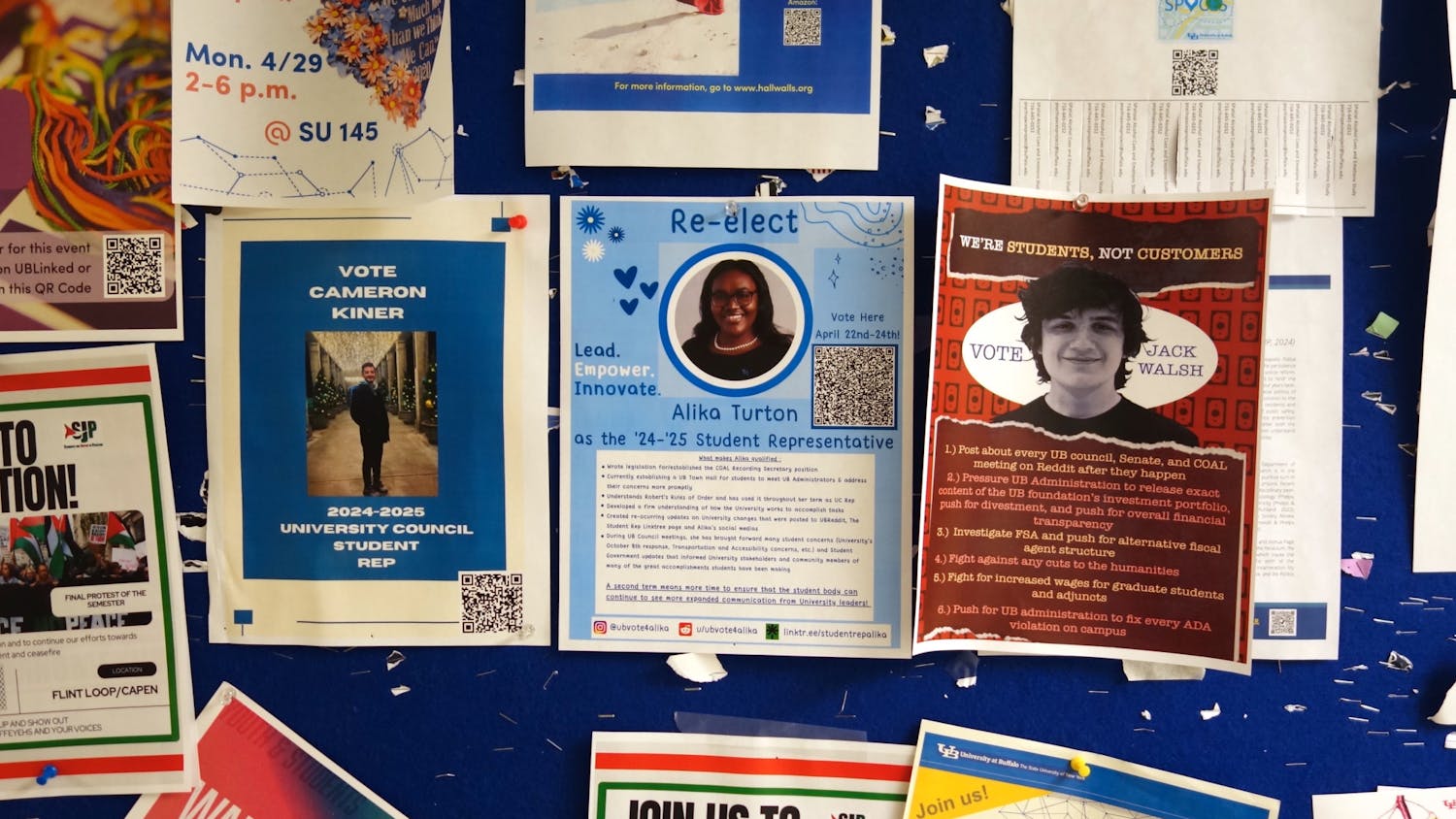Sometimes all it takes is 140 characters on Twitter to become a leader. In Aaron Krolikowski’s case, he didn’t want to be late to work.
Krolikowski, UB alum, was one of three speakers at UB’s first Leadership Engagement Advocacy Diversity conference on Saturday. The conference was a daylong event aimed to educate students about how to be an effective leader in the 21st century through speakers and workshops.
Krolikowski spoke about a time he was waiting for a Niagara Frontier Transportation Authority (NFTA) train to arrive in the cold Buffalo weather. At the time, the NFTA did not post schedules of single-track delays, so he tweeted Eric Poloncarz, the Erie County executive, about the problem. Poloncarz then asked the NFTA to post those schedules, and it did.
The Center for Student Leadership and Community Engagement (CSLCE) and the Intercultural and Diversity Center joint-hosted the conference, which was open to all UB students.
Jude Butch, the leadership programming coordinator for CSLCE, said there were 112 students who attended the conference.
“Bringing different people across the campus also helps us to recognize more voices and leadership styles from campus and contribute to this learning environment,” he said.
The speakers at the conference talked about different topics aiming to help students gain further insight on leadership topics in the 21st century.
Alyson Katz, a freshman undecided major, attended the conference as a part of the Torch, a leadership certificate program at UB.
“It’s also a great opportunity to further explore what leadership is all about,” she said.
Joshua Fredenburg, a nationally recognized speaker, said evaluating yourself with honest questions and trying to enlarge your worldviews is the first step to becoming a modern leader. It is essential for leaders to work with diverse groups in the 21st century, according to Fredenburg.
He said it is important to become an adaptable leader because adaptability and flexibility are defining skills of today’s leaders. It is also necessary to lead and connect with people through love – not as an emotion, but as a commitment to yourself and others despite how you feel at the moment and how people treat you.
“If you continue to lead despite hard feelings, that’s when you lead and connect your group with love,” Fredenburg said.
Krolikowski talked about the importance of advocacy and leadership and its relations to social challenges that are felt in our daily lives. He said taking an Urban Problems and Community Development seminar helped him to see the issues in the Buffalo community.
Krolikowski then took his leadership skills abroad. In Oxford, he looked into the politics of water and usage of mobile phones as an infrastructure for daily functions in East Africa. The experience inspired him to return to Buffalo and use his skills to challenge his home community.
Teresa Miller, the third speaker, talked about opportunities and challenges for a more diverse community, like UB. She spoke about changing landscape of leadership and how to cultivate leadership to promoting equity and inclusion on campuses.
She said there are a lot of shifts in the perception of societies, for example, the perception of diversity in America has shifted from color to ethnicity and gender. This is due to more immigrants coming to the United States from different parts of the world, according to Miller.
Miller emphasized the importance of authenticity for campuses and how important it is for campus leadership to have the support of student leaders.
She suggested a safety project on campus that looks into asking students whether or not they feel safe. She said if they ask students about a broad question like safety, they would be able to get more pieces of topics that causes discomfort, whether it’s a matter of walking alone at night, a gay couple holding hands or asking a question in class.
email: news@ubspectrum.com





